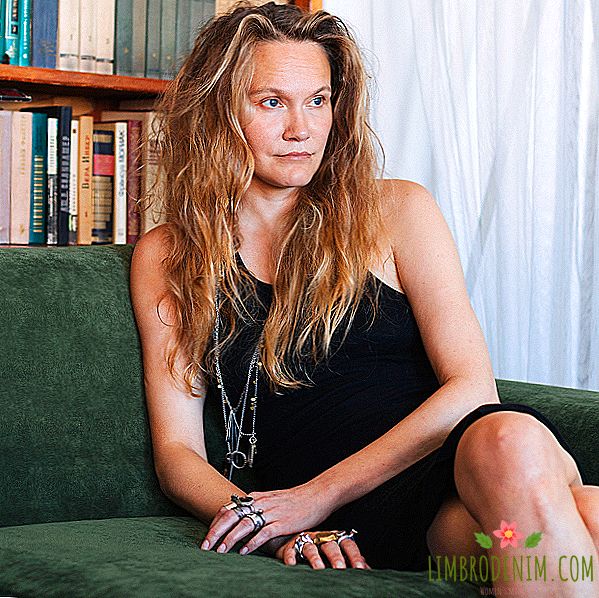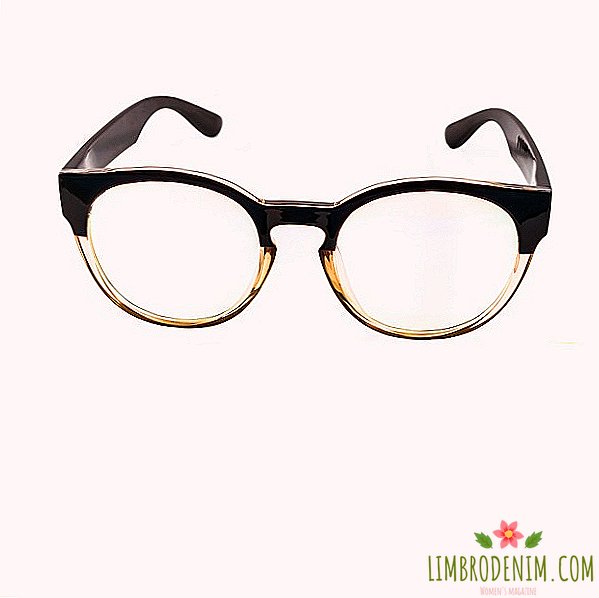Context Director Sofia Kapkova about favorite books
IN BACKGROUND "BOOK SHELF" we ask journalists, writers, scholars, curators, and other heroines about their literary preferences and publications, which occupy an important place in their bookcase. Today, the director of the festival Context, the founder of the Center for Documentary Cinema Sofia Kapkova, shares her stories about favorite books.

 For me, books are the quickest and easiest way to escape from reality. They make life easier, helping to compare themselves with those who are harder or easier than us. It seems to me that literary biases are generally the most intimate information that a person can tell about himself. Even exposure to the camera for me is incomparable by the degree of candor. You really recognize a person when he talks about himself and his memories through books he has read.
For me, books are the quickest and easiest way to escape from reality. They make life easier, helping to compare themselves with those who are harder or easier than us. It seems to me that literary biases are generally the most intimate information that a person can tell about himself. Even exposure to the camera for me is incomparable by the degree of candor. You really recognize a person when he talks about himself and his memories through books he has read.
I have a lot of warm and funny memories associated with reading. For example, when I had pneumonia with a temperature of forty when I was seven, and Gogol's Dead Souls fell into my hands - it seemed to me that this was the main Russian horror film. Or, as from an overdose of literature, before I entered filfak for a couple of months I read pocket novels in a thin cover, awkwardly hiding them behind something dense. For ten years in a row I traveled with my best friend, who always had better books than I did, and we blasphemously tore up the publications in half, passing each other pieces; I still keep at home a few such halves.
I started reading when I was four years old, and when I entered school, I saw that the rest of the children do it by syllables. I really wanted to be like everyone else and, imitating, I also began to read like them - and from the stress I had completely forgotten how to put the letters into words. By the end of the first quarter, I had forgotten how to read at all and everywhere put the wrong stress: my psychiatrist mother was summoned to school and asked to transfer me to an institution for children with special needs. Then this, thank God, was corrected - and all the following years I spent with books. At first, I wanted to enroll in philology, but, fortunately, I chose a journalism journal: at the same time, literature was always with me, and plans for the future implied constant reading.
I continue to correlate myself with many books, others advise friends and listen very carefully to personal recommendations. I always read what the eldest daughter gives me, she is almost eighteen. Most often I choose memoirs, diaries, biographies or nauchpop. Is that with modern fiction, I sometimes do not develop relationships: it is often, like a game film, for me, or too realistic, or too far-fetched. Therefore, in the absence of new books, I would prefer to open a well-known classic.
I really like to study, and in my work there are always topics that I want to know more about - whether it be documentary or modern dance. There are several rules that I adhere to: for example, I read English-language literature only in the original, in order to train English and not be upset when a bad translation kills a good deed. Another rule is to constantly update the library in the footsteps of book reviews or trips to your favorite stores: I will try to at least open each lauded edition in order to form an idea about it.

Lev Tolstoy
"Anna Karenina"
The first time I read this book of Tolstoy in the sixth grade. Then I took her as a love affair, terribly empathized with the heroine and very emotionally perceived everything that was happening to her: these creepy ears of the old evil husband, which she could not bear any longer, all her ordeals. Five years later, at the university, I reread Karenin and found that my husband is not that awful. Even began, on the contrary, to empathize with him - a gentle, intelligent, kind and understanding person. A young pointless lover terribly began to annoy.
After a few more years, on vacation, due to the absence of other books, I returned to Tolstoy and was surprised at how my attitude towards Anna herself had changed. At thirty years old, it was impossible for me to understand how she, an adult woman with a child, allowed herself to be so irresponsible. Now I have a rule: once a decade (I will soon be forty), I re-read Karenina, which works like a litmus test of my internal changes.
Denis Diderot
"Nun"
I always very much empathize with women - in movies, in literature, and in life. I feel sorry for them more than men. I read Diderot too at school, being a maximalist with typical teenage problems. Page by page I realized that my life is not so bad. Unhappy Mary, her misadventures and troubles are an example of a difficult fate at all times, regardless of origin, religion or standard of living. This book by Diderot is the perfect reading for a teenage girl.
Giovanni Boccaccio
The Decameron
Boccaccio did not make any impression on me in the first courses, but when I was under thirty, I realized what a sensual text it was. I had a close friend who was experiencing a strong romance: with her lover they corresponded with quotations from the Decameron. It turned out that I never read anything more sexual than their correspondence. There is a stereotype about romance novels that this is something in the spirit of "He kissed her neck and she goosebumps to her fingertips." Terrible vulgarity. And here every quote is erotic. If someone has a sad end of love has not yet come (and he will definitely come), then to prolong the feeling, it is worth rereading Boccaccio.
Michael S. Roth
"Beyond the University: Why Liberal Education Matters"
Now we are discussing a lot about what education should be, and the book by Roth, president of Wesleyan University, which even in America is considered the most liberal among all liberal arts colleges, is an excellent answer to this question. Humanitarian education educates self-confident people with a broad outlook and high adaptability. This book is a study of the university environment and what is the general meaning of education in our time: the facts are mixed with the personal experience of Roth, who talks about his studies and traditions of American colleges.
I advise this book to all parents who want to understand what a promising education is for their children. Plus, she explains: learning is not a stage in a few years, but a skill system that can be used all your life, no matter how the world around us changes during this time.
David Lynch
"Catch Big Fish"
I am stressed and this is my main problem. David Lynch's book on transcendental meditation, which he has been doing for many years, is a concise handbook of human characteristics and personal experience in dealing with nervousness and anxiety. It is both a mental diet guide and a story about how and why a person generally comes to meditation. Lynch does not act as a coach or a psychologist, but talks about practice using a personal example: any thesis here has confirmation from biography and creative experience, which makes each word several times more powerful.
David Servan-Schreiber
"Antistress"
David Servan-Schreiber has written two major books: Anti-Bust and Anti-Stress. His story is amazing: the doctor, being young and full of energy, is diagnosed with brain cancer - and this is always a sentence. They promised Schreiber a few months to live, but he lasted twenty years.
At one time, this book was something like oxygen for me - I could not live without it: you discover, read that it already happened to someone, this person coped, and it means that everything will be fine with you too. She helped my mother get together after the diagnosed cancer, and I support her in a situation in which you don’t know what to do. Reading such works in private with oneself and with loved ones, crying and empathizing is an obligatory stage in order to move on.
Katerina Gordeeva
"Beat the cancer"
We filmed a three-part documentary film on cancer treatment with Katerina Gordeeva and relied heavily on Schreiber. The book "Defeating Cancer" happened after our film, where there are pieces about me, about my mother and about the personal relationships of many people with their diagnosis. This book, despite the fact that it is about a very difficult life stage, gives a lot of hope and a lot of solutions. It is real support, only in the form of text and a dozen different stories that give rise to an emotional response. The problem is that we are a very closed nation, and some things still need to be pronounced in order to overcome difficulties together and not to isolate from major problems.
"The New York Times. 36 Hours. 125 weekends in Europe"
Stress can be dealt with in different ways - and this is my most frivolous and simple. For me, Moscow is generally quite a nervous city, and from time to time I want to get out of here somewhere. Because of the schedule, it develops so that 36 hours in a city is the absolute maximum I can go to. Sometimes I use the book as a literal travel guide, and when there is no time for a trip, I open it and just read what I could do in some European city for two and a half days.
This Friday I could fly here, see this and have dinner here - all these fantasies are incredibly relaxing. I have visited many places, but did not know elementary things about many cities. So, on the one hand, this is a search for a stranger in a friend, and on the other - a complete avoidance of responsibility: you act according to a plan that you have already drawn up.
Heidi Murkoff, Sharon Mazel
"What to Expect When You're Expecting"
Recently, I became a mother for the third time - it would seem, what is already surprised, it seems that you know everything very well. But discoveries continue to happen - for example, with books. In America, I ended up in a store where there were a lot of mothers and children with nannies and strollers, and was choosing publications, including about pregnancy. The friendly cleaning lady, seeing my pile of books, offered help and began discussing future purchases with me. One book with a cover on which was written "20 million copies sold" quickly attracted my attention, and my interlocutor looked at me in surprise: "How do you not know anything about it? It's a real bible!"
The book is arranged in such a magical way that gives answers to all current questions. Suppose you wake up in the morning with some discomfort or a new feeling, open a page with the exact day of your pregnancy and read about how you feel, and find out that this is normal and will soon pass. The book is so popular that the company even released a mobile application, where in real time in the phone you can check what is happening to you and your baby. The book is quite thick, but without it I did not even go for a walk. The idea that everything under control and at hand is the answer to any question is very reassuring.
Sheng Scheyen
"Dygilev." Russian Seasons "forever"
As a person making a festival about contemporary choreography, I’ve been reading the diaries of dancers and memoirs of choreographers for several years. And a book with such a name could not pass by. It seemed to me that I know a lot about this man, but the book was a revelation. She strengthened my belief that what I do is very correct.
It turned out that we have a similar view of the world. This biography is not only a complete statement of the fate of the main Russian entrepreneur, but also a historical guide to what happened to Russia a little more than a hundred years ago. People who are engaged in culture in our country today, perfectly recognize themselves in the heroes of the book. In Russia, all the same problems: the endless search for money, censorship. On the one hand, it is sad, on the other - it makes me accept it.
Paul Cronin
"Werner Herzog: A Guide for the Perplexed"
This work will be translated and re-edited in the winter - the already well-known interview book “Meet - Werner Herzog” has added material for the last fifteen years and information about all the films that the director managed to film since. For people who are engaged in documentary films, books about Herzog again, the Bible. In his personal memories and remarks, his sense of humor, self-irony and the desire to experiment with the viewer, to make fun of him a little, are easy to read.
Here are told small but characteristic stories that explain a lot - about Herzog, his approach and his relationship with the audience. For example, that the director, after much deliberation, decided to voice "The Simpsons" or what he feels for German football. Herzog describes why he shoots the way he does and how he treats the most different things - and reading this is not only very informative, but also enjoyable. After all, when someone great with humor treats himself, it is worth a lot.




